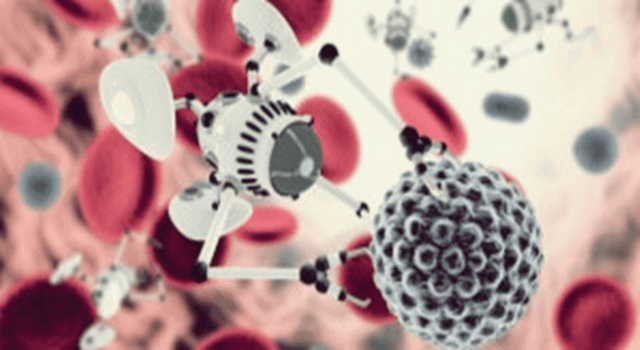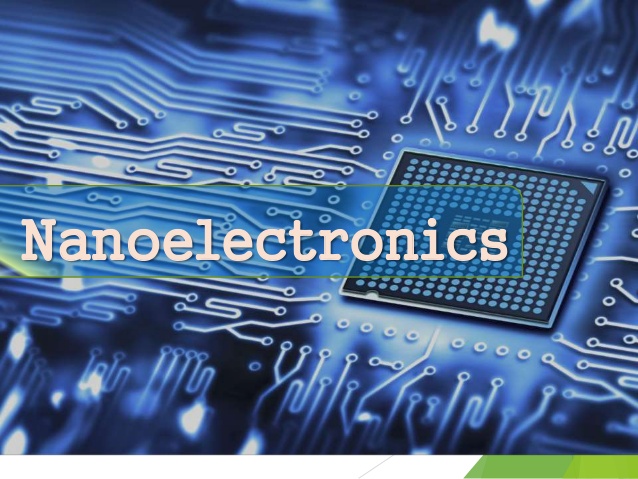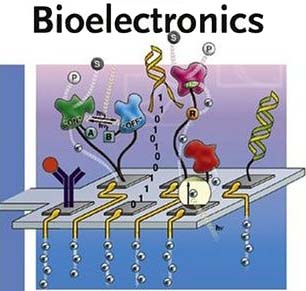Nano microbiological robots A controllable nanoscale device consisting of a nano bio sensor liquid nanosensor and a nanoelectric motor (PhD in Nano-Microelectronics)
Researcher and author: Dr. ( Afshin Rashid)
Note: Biological Nano Robots The medical Nano bio robot is similar to red blood cells. Non- reboot can be used as a nano-scale control of a nano-sensor liquid biological nano bio sensor and an engine, capable of performing specific tasks are defined , but more a piece of cloth wrapped like have. He defined them as a means of identifying beneficial or harmful cancer cells. When they sense the enemy, they make changes and release a substance that can act against it.
In the manufacture of Liquid nanosensors, in SiNWs with p-scanning and amplification of medical and biological electrical nanosensors, depending on whether we want to use this sensor to analyze intracellular species, intercellular biological fluid or in the blood, The dimensions of the sensor tip, the tapered angle of the tip and the softness of the coating on the fiber will vary. To provide this fiber as a sensor tip, we can use the devices used to stretch Liquid nanosensors in SiNWs channels with p-scanning . These types of sensors in terms of nanometer size and their application in liquid media, Liquid nanosensors, in SiNWs channels with p-scanning Were named. Nano-sensors are very small electrodes in nanometer size and cellular dimensions that are sensitive to the detection of desired chemical or biological species in cells by fixing certain enzymes on their surface . The nano-sensors Liquid Liquid nanosensors, SiNWs channels with p- scan for the detection and quantification of species used in biological systems. This technique is a very useful way to detect the passage of certain molecules through a cell wall or membrane.
In general , there are two important issues in the construction of nano microbiological robots . First, simulation and design based on macro robots that include propulsion; Communication and orientation is the second and assembly of nano-robot parts. Research in the field of nano-robotics is theoretical and no non-biological artificial nano-robots have been made so far. The whole idea behind nano-robots is that when a patient takes a pill to cure any disease, instead of containing a chemical, the pill has a real working machine inside - a nanocarrier. This nanocarrier contains small amounts of the required drug and actually travels to the target organ and delivers the drug to a specific location. The most important advantage of this method is that the drug does not need to travel through different pathways of the body such as blood flow and therefore does not dilute when it reaches its goal. Therefore, drugs delivered via nano-bar are often much more effective than drugs that are normally delivered. Nanobots will be especially useful in treating diseases such as cancer in which specific cells are targeted. Bacteria that have magnetic particles can maneuver inside the body using nanocarriers. By changing the surrounding magnetic field, the bacteria can move in any direction. This method can be extended to navigate nano-robots. The second problem after navigation is the power in the nanobar. A nano-robot is a machine, and all machines need a source of power. The most obvious way is to create a power source small enough to be mounted on a nano-robot. However, the main problem with such an approach is that a small enough battery is not able to provide the much energy it needs, and therefore the need for alternative sources is considered. One of the best solutions to this problem is to use the human body as a source of energy. This nanobar travels through the bloodstream to reach its goal. The blood contains a number of charged particles in it, which, if used properly, can form a battery for nanocarriers. This nano-robot can be equipped with an electrode, and with the help of these electrodes and electrolytes in the bloodstream, a suitable source of electricity can be created. Another option is to provide nanobots with large amounts of chemicals that burn when they react with blood. The energy released by combustion provides the necessary power for the nanocarrier.
Nano bio robots Medical Nano bio robots are like red blood cells. Non- reboot can be used as a nano-scale control of a nano-sensor liquid biological nano bio sensor and an engine, capable of performing specific tasks are defined , but more a piece of cloth wrapped like have. He defined them as a means of identifying beneficial or harmful cancer cells. When they sense the enemy, they make changes and release a substance that can act against it.
Researcher and author: Dr. ( Afshin Rashid)
PhD in Nano-Microelectronics




